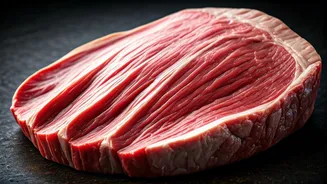Muscle Loss/Weakness
One of the most apparent signals of inadequate protein intake is the progressive loss of muscle mass, also known as sarcopenia, especially in men over
35. Protein is the fundamental building block for muscles; therefore, when the body does not receive enough protein, it begins to break down muscle tissue to compensate. This process leads to reduced muscle strength and endurance, making everyday activities like lifting objects or climbing stairs significantly more difficult. Individuals might also notice a decrease in physical performance during workouts or sports activities, and experience slower recovery times after exercise. Additionally, this muscle wasting can affect metabolism, leading to reduced calorie burning and potentially contributing to weight gain and a decline in overall physical function.
Frequent Fatigue
Constant tiredness and fatigue are commonly experienced by men lacking adequate protein. Protein is essential for various bodily functions, including the production of enzymes, hormones, and neurotransmitters that are essential for energy levels. When protein intake is insufficient, these functions become compromised, leading to a general feeling of weariness and lethargy. This fatigue is not just physical; it also affects mental clarity, making it harder to focus, concentrate, and make decisions. This could disrupt regular routines, decrease productivity at work, and reduce the enjoyment of leisure activities. The lack of protein-fueled energy can significantly affect quality of life, leading to feelings of sluggishness and a general lack of vitality.
Slow Wound Healing
Protein plays a critical role in the repair and regeneration of tissues, making it necessary for effective wound healing. Men deficient in protein often find that cuts, bruises, and other injuries take longer to heal. This delay is because protein is involved in the formation of new tissue and the production of collagen, which is critical for wound closure and skin repair. Poor wound healing makes individuals more vulnerable to infections because the body's natural defenses are compromised. Even minor injuries can become problematic, taking an extended period to recover and potentially leading to complications. This issue is particularly noticeable in older men, as the body's ability to repair tissues naturally declines with age.
Hair, Skin, Nail Issues
Protein deficiency can manifest in various ways related to the health of the skin, hair, and nails. Since hair and nails are primarily made of protein, insufficient intake can lead to brittle, thin hair that falls out more easily and weak, slow-growing nails prone to breaking or peeling. The skin may become dry, flaky, and lose its elasticity, leading to premature aging and a dull complexion. The body prioritizes essential functions when protein is scarce, reducing the resources available for non-essential tissues like hair, skin, and nails. This prioritization ensures the survival of vital organs, but it can cause noticeable changes in an individual's appearance. The physical changes not only affect aesthetics but can also affect self-esteem and confidence.
Increased Hunger
Protein is known for its ability to promote satiety, which means it helps you feel full and satisfied after eating. When protein intake is low, men may experience increased hunger and cravings, leading to overeating and potentially weight gain. Protein slows down the digestion process and helps stabilize blood sugar levels, preventing the dramatic spikes and crashes that can trigger hunger signals. Without enough protein, the body may constantly signal the need for more food, even shortly after a meal. This can make it difficult to maintain a healthy diet and control calorie intake, increasing the likelihood of poor food choices and unnecessary snacking. An increased appetite can also disrupt meal timing and create a constant preoccupation with food.
Mood Swings
Protein deficiency can significantly affect mood and mental health. Protein provides the amino acids needed to produce neurotransmitters like serotonin and dopamine, which regulate mood, happiness, and overall well-being. A lack of these amino acids can lead to mood swings, irritability, anxiety, and even depression. The brain struggles to function effectively without enough protein, causing changes in behavior and cognitive functions. This can create a cycle where poor mood impacts eating habits, leading to further protein deficiency. In men over 35, where hormonal changes and life stressors are common, this impact can be even more pronounced, affecting relationships, work performance, and overall quality of life.
Weakened Immunity
A sufficient amount of protein is crucial for a strong immune system. Protein is fundamental to the production of antibodies, which are essential for fighting off infections and diseases. A protein-deficient body has difficulty producing enough antibodies, making individuals more susceptible to frequent colds, flu, and other illnesses. Wound healing is also impaired, and recovery is slowed. Men over 35 may experience a weakened immune response, leading to more frequent or severe infections. The impact of weakened immunity is not only physical but also affects overall health and wellness. This can lead to missed work, a reduction in social activities, and a need for more medication, impacting overall health.












